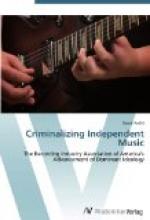|
This section contains 1,314 words (approx. 5 pages at 300 words per page) |

|
Analysis of Dominant Ideology in Various Media Texts
Summary: Essay closely compares two essays written about Dominant Ideology: "The Dis-Order of Things in Twin Peaks" by J.P. Telotte and Fisk's reading of critical analysis in "Television: Polysemy..." In essence, it is an examination of dominant ideology as it exists in a handful of media texts.
Stuart Hall has posited that the concepts of individual dream states can be brought on a macroscopic scale to media text. In particular, "nightmares" of individuals, can be related to the semiological analysis of a given media text in relation to dominant ideology and culture in general. His main points in this are twofold, first is to point out that the more horrible and "nightmarish" a media scenario (i.e. story) is, the more difficult it is to de-construct the ideological markers that serve as the basis for the text. The second, and perhaps more important, is that the ideological representation in the nightmare represents a repressed wish of society and has increased threat to the dominant class, or the bourgeois.
For example, the nightmare Alien of sci-fi fame is used as an example of the perceived overcrowding and overpopulation of America by minority groups and cultural absorption...
|
This section contains 1,314 words (approx. 5 pages at 300 words per page) |

|


